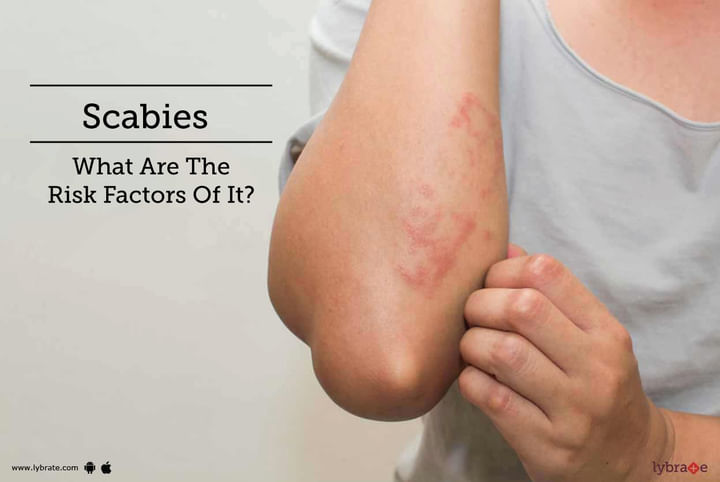Scabies - What Are The Risk Factors Of It?
Scabies is a skin condition that causes the skin to itch. It is caused by a tiny burrowing mite, which is called Sarcoptes scabei. The presence of the mite in the burrowed areas causes intense itching, especially at night. This a contagious condition which can quickly spread through physical contact in places like nursing homes, schools, prisons etc. Scabies is easily treatable by applying lotions to the skin that may kill the mite. Yet, one may still experience itching for several weeks.
The eight legged mite that causes the condition is microscopic. The female mite burrows just beneath the skin and makes a tunnel where it deposits eggs. These eggs hatch, mature and spread to the other areas of the skin or to the skin of other people. The body's allergic reaction to the mites, their eggs and wastes causes the itching.
Symptoms
Some of the symptoms of the condition are severe itching, narrow irregular burrow tracks which look like blisters or bumps on your skin. The burrow tracks generally appear in the folds of the skin. The common sites of the condition are between the fingers, armpits, around the waist, soles of your feet, knees, shoulder blades etc.
Complications
Some of the complications of the condition are:
1. Vigorous scratching which can break your skin and can cause a secondary infection such as impetigo. This superficial skin infection is usually caused by the staphylococci bacteria.
2. Severe scratching can also lead to damaged and reddened skin which in severe cases can start to bleed.
Risk factors
Crusted scabies, also known as Norwegian scabies is a severe form of the condition which affects certain high risks group such as:
1. People with chronic medical conditions such as HIV/Aids or chronic leukemia
2. Older people in nursing homes
3. People who are very ill



+1.svg)
